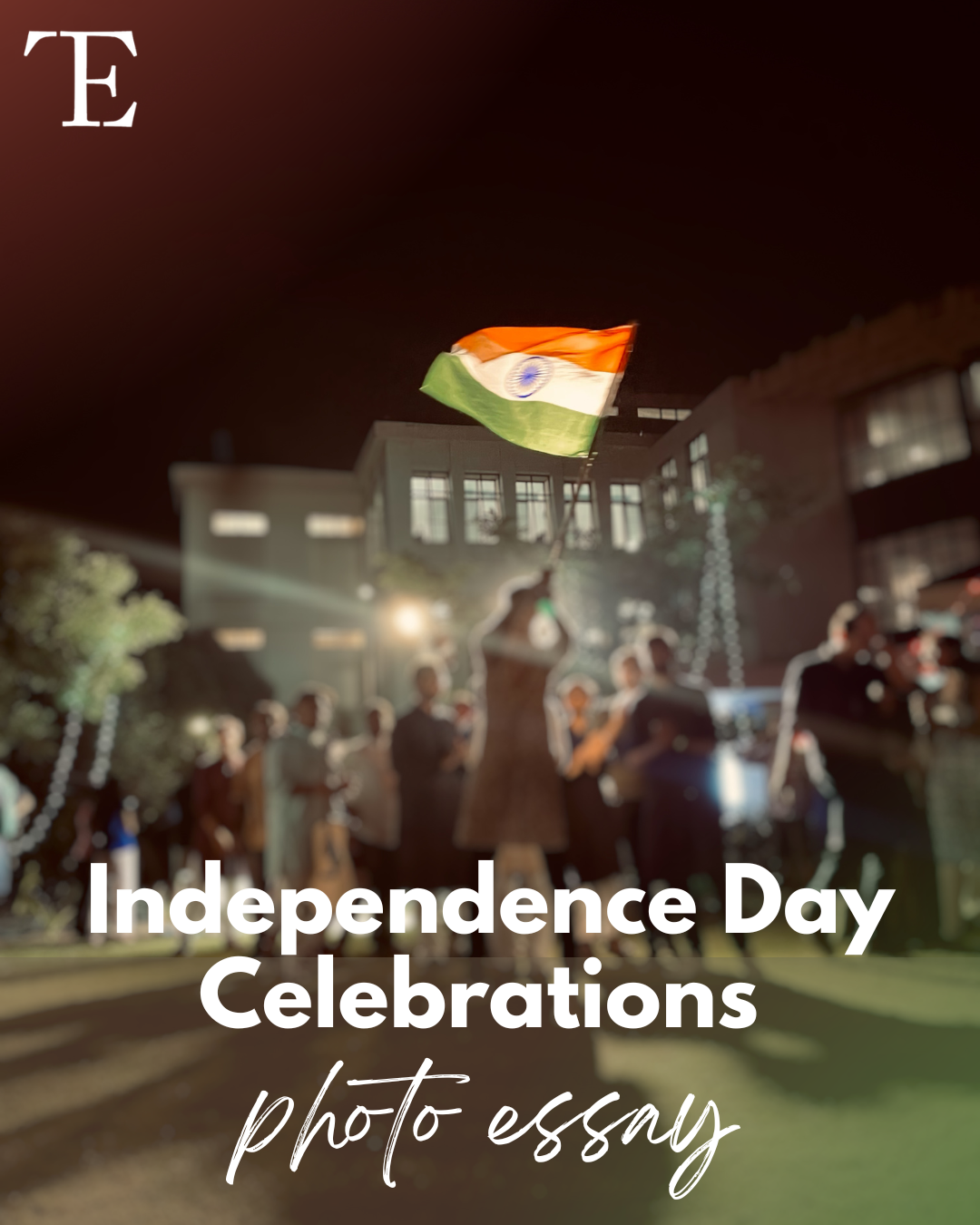The second day of the conference began with the Economics session. Dr. Malathy welcomed everyone gathered there and stated that this session on economics was particularly outstanding for it dealt with the complex conjugation of social conflicts and economical sciences and its role in resolving them.
A video conference by Dr Partha Gangopadhyay (University of Western Sydney), presenting the keynote lecture on ‘Economics of Conflict: Its Uses and Abuses’ followed, where he focused on the main source of all conflicts – abject poverty. Having published several papers on conflict, his insightful points were quite thought-provoking, and he rooted for inclusive growth as being the panacea for conflicting situations.He believed, “Only the nice societies with nice people will survive. The rest will be history “. Economic sciences can only provide the economical foundation to a nice society, but is not the answer to resolve conflicts.
Prof. S Subramanian ,through his expertise in the field of measurement of economic variables, stressed on inequalities as forming the base of conflicts and elaborated on the varying faces of inequality, the different scales used to measure them and their validity within the Indian context in his lecture, ‘Aspects of Growth and Inclusiveness: The Indian Experience’.
M. Akhil of IIT-Madras presented a paper in which he emphatically stressed on the various angles of inequality and elucidated how the political economy with all its social complexities is linked to conflicts. The second paper presentation by Ms. Madhavi, University of Hyderabad, was also constructed on similar lines as she enunciated on the complexities involved in studying ‘how economic inequalities leads to conflicts’.
When the question session commenced, several interesting queries cropped up and the answers that followed showed the amount of research and extensive readings that the speakers did hitherto. They were duly appreciated by Prof. S Subramanian, who also added a few pointers to better their presentations.
On a concluding note, the organisers said that the point of the session was not to come up with solutions but rather to provide food for thought and propel those gathered to delve further into the complexities of the said subject and enrich themselves.
The English Session of the Conference was based on the theme ‘Fractured boundaries in Indian Writing in English (IWE)’. It was held on the 22nd, at the IC and SR main auditorium. The keynote speaker was G.J.V. Prasad of the Centre for English Studies, JNU. There is conflict, he said, between Indian writing in English and Indian vernacular writing, and that this conflict was caused by the English, or rather, by the introduction and promotion of English in India by the British. English education was introduced with the best of intentions. Rajaram Mohan Roy emphasised its importance for the study of science and for progress; he considered it the symbol of modernity. But over the years, the tussle between vernacular languages and English has continued.
There are different layers to this conflict. English, Prof. Prasad said, does not have a history, a tradition in comparison with Indian languages. It is a language which does not belong to any particular country. English has helped erase or cross boundaries. Therefore, conflict is always a given. In India, the very idea of a ‘nation-state’, of freedom was born in English. This is an example of how the language introduced by the oppressors also helped the oppressed fight them.
Is IWE defined as literature by Indians in English, or is there some special tone to it, and ‘Indianness’ that entitles it to a whole new genre? It was at this point of the lecture that we came to the question of what is actually authentic IWE. Is Salman Rushdie, regarded by many as the face of IWE, a genuine example of an IWE author, or is Chetan Bhagat a more appropriate example? A surprisingly overwhelming section of the audience felt that Bhagat was more ‘authentic’, more ‘Indian’ compared to Rushdie. There now arises the conflict between home, i.e. India, and abroad. Prof. Prasad felt that literature by the members of the Indian diaspora cannot be considered IWE. But it was still true that “ a literary writer (e.g. Rushdie) who makes it abroad makes more money than a popular writer in India (e.g. Bhagat)”
There is certainly no question of denying the prominence of English in our country today. The only language, he said, the nation as a whole identifies with is English. Vernacular languages have “given up the fight” to reign over it. Content in regional language newspapers and magazines are peppered with English words. At least in urban areas of the country, switching from English to the vernacular, speaking in a unique hybrid of the two is common. The conclusion was insightful. Prof. Prasad said the English is a neutral language. No other language provides people with an equal footing in India today, apart from English.
As in other sessions, two paper presentations followed. Gopika Jairam from EFLU and Siddharth Srikanth of IIT-M presented their papers on “Will the real Indian writer please stand up? and “Toward a Cosmopolitan Imagination: Family and Strangeness in ‘The Shadow lines’. The session and the conference ended with a panel discussion on the same.


